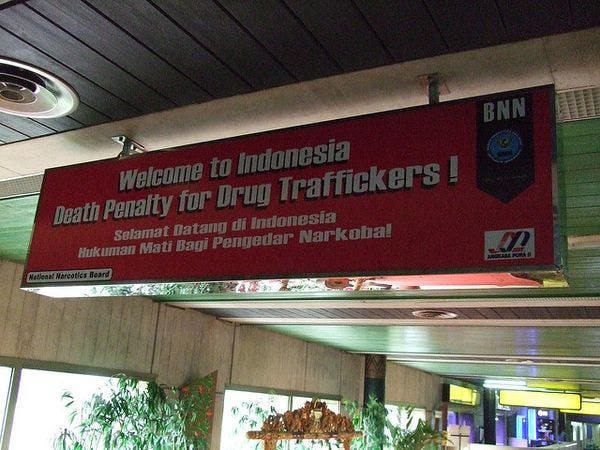Las recientes ejecuciones en Indonesia por crímenes de droga son un símbolo inquietante de una tendencia
La creencia en los castigos más duros como herramienta para disminuir los mercados de la droga ha dominado la política de drogas por décadas, incrementando el impacto negativo de las políticas prohibicionistas. Más información, en inglés, está disponible abajo.
Suscríbase a las Alertas mensuales del IDPC para recibir información sobre cuestiones relacionadas con políticas sobre drogas.
Today, Indonesia took several people convicted of drug offenses, lined them up before a firing squad, and shot them dead. They were the latest victims of the draconian drug policies implemented by President Jokowi, who resurrected capital punishment when he took office in 2014, and who had 14 people executed for drug crimes last year.
Indonesia’s turn towards the death penalty for drug offenses speaks to a disturbing trend that is perhaps most starkly illustrated by the country’s island neighbor to the north, the Philippines. In April, while speaking on a UN panel about drugs and capital punishment, I sat alongside the Philippines ambassador as she explained why her government had abolished the death penalty in 2006.
With her words still fresh in my mind, it was with profound sadness that I watched the ascension of Rodrigo Duterte to the Philippines presidency some weeks later. Duterte is a hard-line strongman who came to power on a platform that reinstates capital punishment and actively encourages police officers, and even private citizens, to go out and kill people involved in the drug trade.
President Duterte was inaugurated on June 30, and in his first month in office, we have witnessed what can only be described as state-sanctioned criminality on a mass scale. Reports detail up to 300 people murdered in the streets this month alone, a figure thought to be conservative as it reflects only those killed in police operations, and not those perpetrated by armed vigilante groups egged on by the president himself.
A local newspaper even maintains a regularly updated kill list, providing an ongoing, gruesome catalogue of the slaughter. Such open brutality in the name of “fighting drugs” has not been seen since 2003, when the government of Thailand murdered 2,000 alleged drug dealers in a three-month killing spree widely condemned by human rights organizations and UN bodies.
Click here to read the full article.
Keep up-to-date with drug policy developments by subscribing to the IDPC Monthly Alert.
Thumbnail: Flickr CC Jeroen Mirck
Temas
Regiones
Perfiles relacionados
- Open Society Foundations (OSF)
